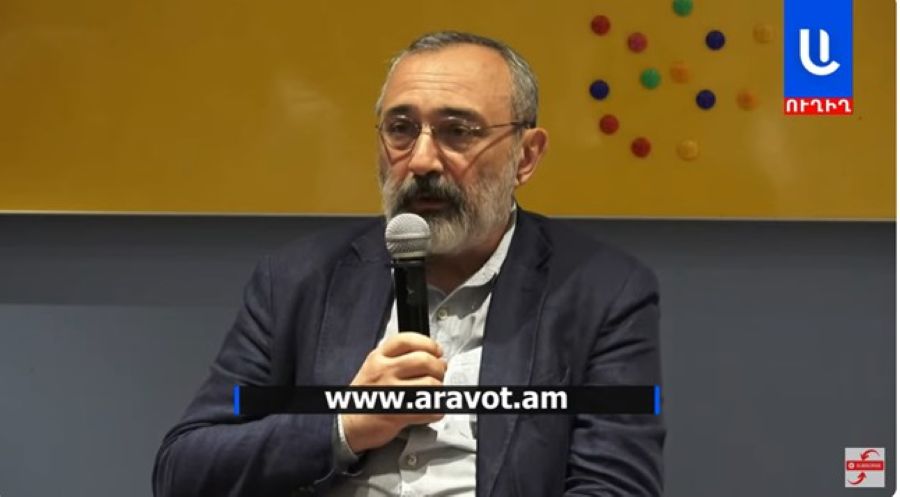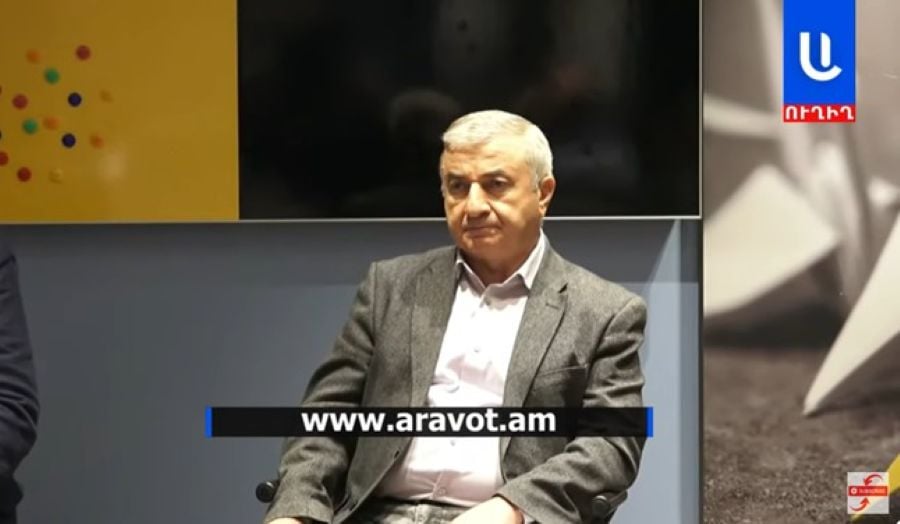“Often you ask yourself: did we do everything right, or were there many mistakes? Since the situation is what it is, then clearly many mistakes were made,” said Ashot Ghoulyan, former Speaker of the National Assembly of Artsakh, during the discussion of the book “The Ashes of Our Fathers: The Story of Nagorno-Karabakh’s Fall” by British journalist Gabriel Gavin.
According to him, it is not as if we should blame only international organizations for these mistakes, although the author of the book criticizes international actors for their indifference. In Ghoulyan’s view, in these events we see today the consequences of the mistakes of all sides—state and non-state, Armenian and non-Armenian.
In his book, Politico correspondent Gabriel Gavin presents the events through the eyes of an eyewitness, from the 2020 war up to the depopulation of Artsakh in September 2023.
“I think the failure to achieve a settlement was partly due to a lack of sufficient attention. I was bitterly disappointed in September 2023, when, despite the warnings, the world did nothing as the entire population of Nagorno-Karabakh was forced to leave their homes. For me, that was a very bitter experience,” the author said.
Read also
Ghoulyan emphasized that many of our compatriots have recounted their tragic journeys: “Two years is too short a period to recover psychologically and to present what happened without subjective factors. When I began reading this book, I realized for myself that perhaps we personally missed many things. When you are under blockade, and it concerns not only food and essential items, but also the inability to have a phone or watch television, it turns out there were international reactions that we only now, retrospectively, are learning about. I am convinced that our compatriots brought with them hundreds of memories from our small homeland.”
Referring to the author’s conclusion at the end of the book that the events of 2023 might be seen as closing the Karabakh issue, Ghoulyan noted: “I think the publication of such books comes to prove that the issue cannot be closed. In any case, it will be reminded to us. It is very unfortunate that it is foreign authors who remind us; it would be much better if we ourselves remembered it, drew the right conclusions, and then thought about our future plans.”
Asked whether more could have been done to raise awareness about the Artsakh issue, Ghoulyan responded:
“Undoubtedly, we could have done more. But as to why more was not done, different opinions can exist. Timing is of crucial importance—when you choose to deal with the issue. For me, the difference is obvious compared with the April 2016 Four-Day War and its aftermath. The war did not end in four days—shelling continued until the end of May. At that time, with the help of our partners in Armenia, we received more than fifty delegations in just those two months. In 2020, the scale of such work was not what it could have been. Nevertheless, I would like to stress that all those who dealt with presenting these events to international opinion during the war months, and who continue to do so now, are doing truly heroic work.”

“Over the past two years, to my knowledge, only two works in Armenian have been published about what happened in Artsakh. They are mainly collections of analytical articles, in English. I have no information about another book of this kind that would describe the events and provide food for thought. This book comes to fill that important gap. I will be glad if, when it reaches Armenian readers, it also serves as a basis for our own Armenian authors to begin writing about this,”
Comparing the information work done during the Four-Day War of 2016 and the 44-Day War of 2020, Mirzoyan said: “In my opinion, the difference between 2016 and 2020 is that in 2016 we won the information war. On this point, everyone agrees.”
Recalling the situation in 2016, he said: “On the very first day of the attack, April 2, Azerbaijan circulated a dangerous thesis. Hikmet Hajiyev began promoting the idea that in front of their troops there were several Armenian terrorists, and behind them there was nothing but steppe—the entire population had fled. On the morning of April 2, the first journalists reached us through Yerevan. In those days it was hard to say whether this was the work of the Artsakh side or the Armenian side. There was no separate Artsakh or Armenian information field, no competing group interests—there was one common information struggle, in which everyone was equally engaged.”
Karen Mirzoyan also noted that when we say there were certain shortcomings in the information field in 2020, it was not because the wrong people were dealing with the issue, but rather because the overall atmosphere, the general political line, played its role and had its peculiar impact.
Tatev Harutyunyan

























































